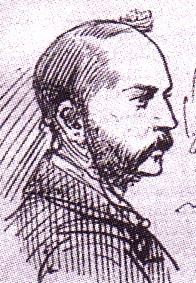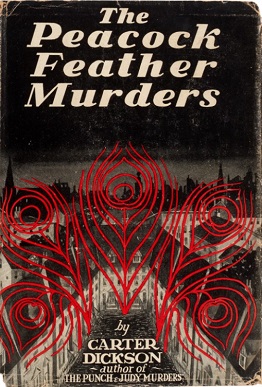
Prime Suspect is a British police procedural television series devised by Lynda La Plante. It stars Helen Mirren as Jane Tennison, one of the first female Detective Chief Inspectors in Greater London's Metropolitan Police Service, who rises to the rank of Detective Superintendent while confronting institutionalised sexism within the police force.
The police procedural, police show, or police crime drama, is a subgenre of procedural drama and detective fiction that emphasizes the investigative procedure of police officers, police detectives, or law enforcement agencies as the protagonists, as contrasted with other genres that focus on non-police investigators such as private investigators.

The Inspector Lynley Mysteries is a British crime drama television series that aired on BBC One from 12 March 2001 to 1 June 2008, consisting of six series and 24 episodes. The protagonist, Detective Inspector Thomas "Tommy" Lynley, 8th Earl of Asherton, who is assigned to Scotland Yard, finds himself paired with Detective Sergeant Barbara Havers. In addition to the tensions involved in solving murder cases, the series is built on clashes of personality, gender and class: Lynley is a polished man and a peer of the realm, and Havers is an untidy woman from a working-class background.

Frederick George Abberline was a British chief inspector for the London Metropolitan Police. He is best known for being a prominent police figure in the investigation into the Jack the Ripper serial killer murders of 1888.
Keith Miles is a Welsh writer of historical fiction and mystery novels. He has also written children's books, radio and television dramas and stage plays. He is best known under the pseudonym Edward Marston, and has also written as Martin Inigo and Conrad Allen.

Thomas Brassey was an English civil engineering contractor and manufacturer of building materials who was responsible for building much of the world's railways in the 19th century. By 1847, he had built about one-third of the railways in Britain, and by time of his death in 1870 he had built one in every twenty miles of railway in the world. This included three-quarters of the lines in France, major lines in many other European countries and in Canada, Australia, South America and India. He also built the structures associated with those railways, including docks, bridges, viaducts, stations, tunnels and drainage works.

Jericho is a British period crime drama series, first broadcast as a series of four episodes on ITV from 16 October 2005. The series was written and created by Stewart Harcourt, and starred Robert Lindsay as Detective Inspector Michael Jericho, a Scotland Yard detective who is loved by the public but embarrassed by his status as a hero. Because of his fame, a TV series, based on his career, is in development, paralleling the real-life TV series Fabian of the Yard which fictionalized the career of Scotland Yard detective Robert Fabian. The series is set in London in 1958. The series was seen as an attempt to exploit ITV's success in period crime drama, best exemplified by Foyle's War, and to rival the BBC's staple dramas such as Waking the Dead.

The Sankey Viaduct is a railway viaduct in North West England. It is a designated Grade I listed building and has been described as being "the earliest major railway viaduct in the world".

David William Frederick Lodge was an English character actor.

Detective Sergeant/Detective Inspector Robert "Robbie" Lewis is a fictional character in the Inspector Morse crime novels by Colin Dexter. The "sidekick" to Morse, Lewis is a detective sergeant in the Thames Valley Police, and appears in all 13 Morse novels. In the television adaptation, Inspector Morse, he is played by Kevin Whately. Following the conclusion of the series, Whately reprised the role as the lead character in Lewis, in which the character has been promoted to the rank of inspector.

Gideon's Day is a 1958 police procedural crime film starring Jack Hawkins, Dianne Foster and Cyril Cusack. The film, which was directed by John Ford, was adapted from John Creasey's 1955 novel of the same title.

Madeleine Beth McCann is a British missing person who disappeared from her bed in a holiday apartment in Praia da Luz, Portugal on the evening of 3 May 2007, at the age of 3. The Daily Telegraph described the disappearance as "the most heavily reported missing-person case in modern history". Madeleine's whereabouts remain unknown, although German prosecutors believe she is dead.

The Ten Teacups, is a locked room mystery by American mystery writer John Dickson Carr, writing as Carter Dickson. It features the series detective Sir Henry Merrivale, working with Scotland Yard's Chief Inspector Humphrey Masters.
Chief inspector is a rank used in police forces which follow the British model. In countries outside Britain, it is sometimes referred to as chief inspector of police (CIP).
Sir Henry Clithering is a fictional character who appears in a series of short stories by Agatha Christie, featuring Jane Marple. The stories were first published in monthly magazines starting in 1927, and then collected into a hard-bound collection, The Thirteen Problems in 1932. Clithering also appeared in several novels featuring Miss Marple.
Inspector Joseph French is a fictional British police detective created by Irish author Freeman Wills Crofts. French was a prominent detective from the Golden Age of Detective Fiction, appearing in twenty-nine novels and a number of short stories between 1924 and 1957. The character was introduced in the 1924 novel Inspector French's Greatest Case, where he investigates a fatal diamond robbery in Hatton Garden. The series relied largely on puzzle mysteries.

The Railway Detective is the eponymous opening title in the series of detective mystery novels written by Keith Miles under the pseudonym Edward Marston. Set in 1851, it is about a railway robbery which is investigated and ultimately solved by two Scotland Yard detectives, Inspector Robert Colbeck and Sergeant Victor Leeming. The novel was published in 2004 by Allison & Busby of London. The book's cover depicts part of The Railway Station (1862) by William Powell Frith. According to the publishers in a 2018 news release, the series has been optioned for television adaptation by Mammoth Screen.
Alanna Knight MBE, born Gladys Allan Cleet, was a British writer, based in Edinburgh. She wrote over sixty novels, including romances, mysteries, crime, historical, and time travel stories, as well as plays, biographies, and histories. She sometimes also published under the pen name Margaret Hope.













